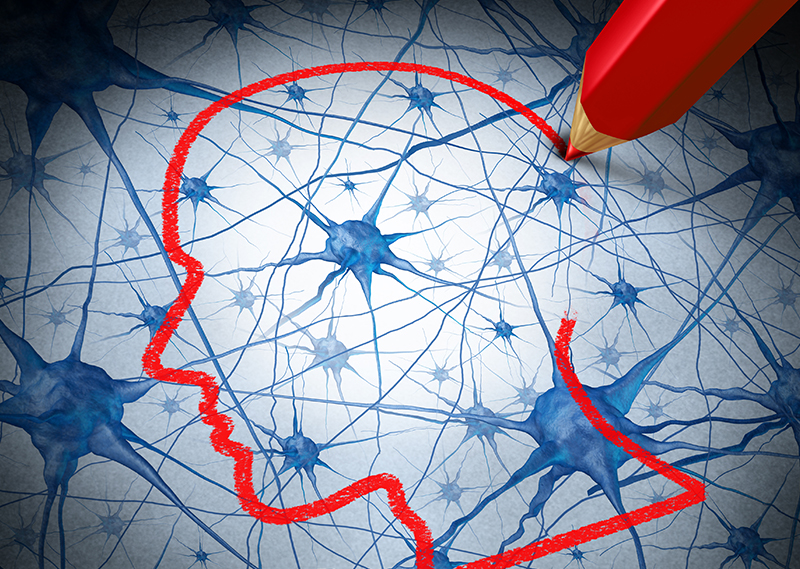
Are We Closer to a Cure for Alzheimer’s? See What Scientists Have Just Discovered If there’s one constant in the race to solve the puzzle of Alzheimer’s, it’s change. It seems as though whenever researchers begin to get a grasp on one piece, new information shifts their hypotheses in a different direction. That’s certainly the case with the astounding new development in the progression of the disease – hopefully bringing us one step closer to an effective treatment or even a cure for Alzheimer’s. For the first time ever, researchers from the University of Cambridge have been able to study human data instead of animal models. Their findings point to an origin of the disease in multiple areas of the brain, rather than a single location that starts a chain reaction, as previously surmised from studies of the brains of mice. Dr. Georg Meisl of Cambridge’s Yusuf Hamied Department of Chemistry explains, “The thinking had been that Alzheimer’s develops in a way that’s similar to many cancers: the aggregates form in one region and then spread through the…

Dementia and Sleeplessness: How to Resolve This Common Problem If it seems like a senior with Alzheimer’s has completely rewritten the rules on when and how to sleep, you’re not dreaming. For reasons that are not yet completely understood, dementia and sleeplessness often go hand in hand, with changes to the circadian rhythm bringing about drowsy days and sleepless nights. The development of the disease is certainly one contributing factor. Damage to brain cells causes increased weakness, making everyday tasks and activities exhausting. Medication side effects from regularly-prescribed dementia treatments can further exacerbate the problem. Why a Good Night’s Sleep Is Crucial for a Senior with Alzheimer's Decreased sleep quality in dementia can result in an increase in delusions and restlessness, and may cause serious safety concerns, including the potential for the senior to wander away and become lost or injured. Not just that, but a senior who is sleepy during the day may also be less likely to participate in healthy activities, such…

How to Discuss a Potential Dementia Diagnosis with the Physician Shame. Fear. Embarrassment. The feelings associated with a potential dementia diagnosis can cause older adults to keep their suspicions to themselves. According to the Alzheimer’s Association, while the reasons vary, many people are worried about losing independence and becoming a burden to others. Although there is some validity to those worries, there are also some misconceptions fueling them. Researchers don’t believe there is one cause of Alzheimer’s. And while age does increase risk, it is not a direct cause of Alzheimer’s. In fact, just over 10% of seniors over age 65 are identified as having Alzheimer’s disease. For this reason, it is crucial for seniors to speak with their doctors for any practical, straightforward information they want – especially if any warning signs of Alzheimer's disease are being observed, for example: Memory decline that is disruptive to everyday life Planning and/or problem-solving issues Issues with finishing once-familiar tasks Disorientation…

Did You Know There Are 4 Different Types of Alzheimer’s? For decades, experts have been exploring the advancement of Alzheimer’s through one basic model, despite the fact that the symptoms and progression of Alzheimer's can vary from person to person. But now, researchers are looking at the disease as four different types of Alzheimer’s. A large, collaborative new study between the US, Sweden, Canada, and Korea is uncovering some interesting information to help us better understand and treat Alzheimer’s disease. Rather than one universal, dominant diagnosis of Alzheimer’s, there are actually four unique variants that occur in as many as 18 – 30% of cases. This change in thinking is helping researchers better comprehend the variations in the disease from person to person. With these findings, specialists are now able to customize treatment plans based on the particular subgroup diagnosed. Alzheimer's disease is characterized by the abnormal accumulation and spread of the tau protein in the brain. This research reviewed data…

Understand How Dementia Progresses Differently Based on the Type of Dementia One of the primary questions in most people’s minds when a loved one is diagnosed with dementia is how dementia progresses, and what to expect in the weeks, months, and years to come. We understand that the unmistakable sign of dementia is the increasing decline in cognitive abilities as well as the skills required to take care of daily life. However, each person progresses through these changes in a different way. There are a variety of factors that may impact how dementia progresses, such as: Prescribed medicines a senior is taking General health and physical makeup The circle of support established The person’s general emotional wellbeing and resilience There are other determinants to factor in based on the type of dementia diagnosed. As an example: MCI (Mild Cognitive Impairment): Mild cognitive impairment impacts up to 20% of seniors. More than the normal minor cognitive decline experienced in aging, MCI involves difficulties with language, judgment, thinking, and memory which…

Low Vision and Dementia Tips and Activity Ideas Finding activities which can be fun and engaging for a senior with dementia tends to be a challenge. Add in vision impairment, and it could seem overwhelming. Even so, it is vitally important to make sure every day holds opportunities for purpose, joy, and meaning – minimizing the level of agitation, frustration, and other challenging emotions and behaviors in Alzheimer's. Our Windsor-Essex home care team has low vision and dementia tips to help. The first step is to think through the older adult's current and past hobbies, interests and lifestyle. Then brainstorm approaches to draw on those preferences. We’ve gathered some ideas to help you get started: Put together a playlist of the older adult's favorite songs or genre of music, and then dance, sing along, keep the beat with a tambourine or a sealed container of dried beans. Talk about the memories the music raises. Read aloud, choosing articles or stories that are easy to follow and on subjects which are interesting…




















